Spring 2020
4
Pressing On: Conversations with Kelli Russell Agodon and Jill McCabe Johnson
Nathaniel Youmans (2020), Contributing Writer
Pressing On: Conversations with
Kelli Russell Agodon & Jill McCabe Johnson

Nathaniel Youmans
Contributing Writer
Class of 2020
Milkweed, Copper Canyon, Sarabande, Tupelo, Alice James, Graywolf. For many, presses like these are household names, a metric for quality and an extended literary community. Small presses are a labor of love, and their editors and staff have the terrific opportunity not only to collaborate on the many intersecting aspects of the writing craft and industry, but they are also at the leading edge of new, urgent literature. Recently, I had the pleasure of talking with RWW alumnae Kelli Russell Agodon (2007) and Jill McCabe Johnson (2008), who have started their own small presses: Two Sylvias Press and Wandering Aengus Press, respectively. Shared below are my conversations with each of them about their experiences.
Kelli Russell Agodon
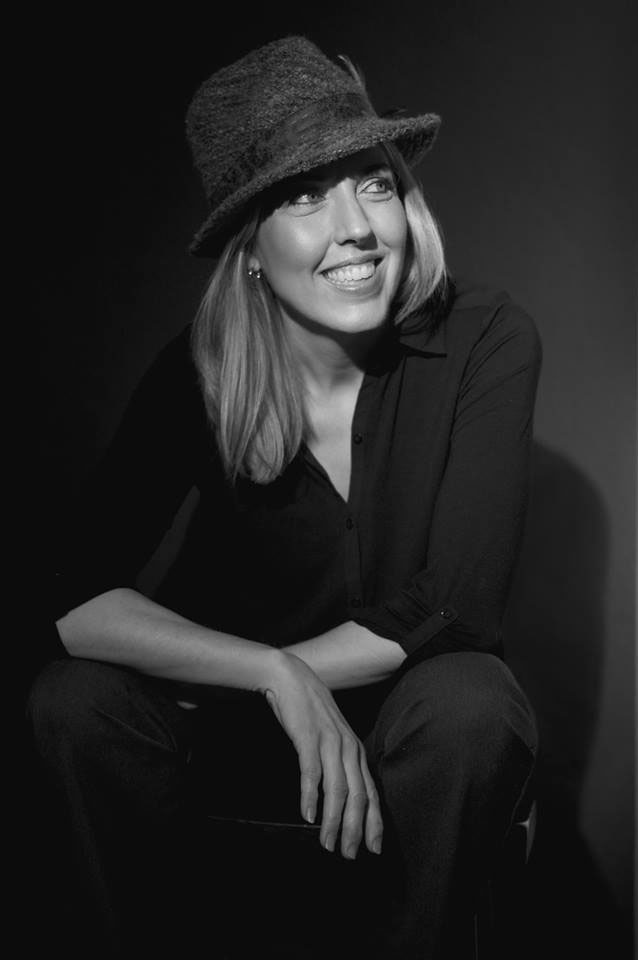
Nathaniel Youmans: Can you describe the no-turning-back moment when you and Two Sylvias co-founder Annette Spaulding-Convy realized you wanted to create an independent press? Where did you go from there?
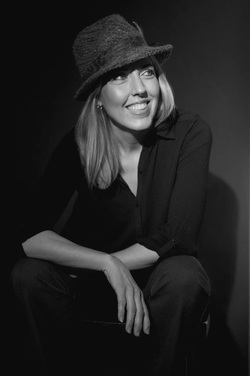
Kelli Russell Agodon
Kelli Russell Agodon: I think we realized Two Sylvias Press was an actual thing after we published our first print book, The Daily Poet: Day-By-Day Prompts For Your Writing Practice, and after we republished an out-of-print book for a friend. Once we had actual authors, things got real. Though, to be honest, we actually never realized we wanted to start a press. What we wanted to do was publish an eBook anthology of contemporary women’s poetry (Fire on Her Tongue); the press was born because no other presses were publishing eBooks of poetry, so we originally started a press to finish our anthology. We had no idea that ten years later, we’d still be here and growing!
NY: Two Sylvias Press was founded in 2010. What are some of the biggest challenges and takeaways from a decade of operation? What’s on the horizon for 2020?
KRA: I think, personally, the biggest challenge for me in the beginning was making sure I didn’t replace my writer-self with an editor-self. I’ve seen that before: poets start presses and then they stop writing, as the press, the books, and the editing come before their own art. I didn’t want to do that. I told myself that if I ever stopped writing or found my poet self lacking, I would quit being an editor. As a press, we don’t have too many challenges except the business end—taxes, licenses, creating contracts, paying royalties—all the things we didn’t learn because we were English majors in college and not business majors. But we’ve learned, and each year, do things a little better.
"I think, personally, the biggest challenge for me in the beginning was making sure I didn’t replace my writer-self with an editor-self."
What’s on the horizon for Two Sylvias Press? Since Annette (my business partner) and I are at different places in our lives, where we hope to travel more and work less, we’re planning on only publishing 1–3 books a year. We have been doing too much in the last couple years and came close to burning out. However, we do plan to offer more online classes, and we’re starting a podcast! So we’re looking for new ways to help others with creativity, write more poems, and find new ways to be inspired.
NY: Your website biography says you’re a born-and-raised Seattleite. How does your increasing role as a steward of other writers’ work influence your ongoing relationship to your home community?
KRA: Someone once told me that the constellations above Seattle are the same as the ones over Florence and Rome during the Renaissance—that’s why so much art, writing, poetry, and music has been created in this area since the ‘90s. I’m not at all sure whether any of that is true, but it makes a good story.
And I guess it’s what I hope for this region—more people making art. I want to continue to create a space for poetry to be discovered by more people. This is a smart, well-read, creative community, and by supporting poetry and local poets, we just keep making it better. Also, it is incredibly fulfilling to make a difference in your hometown, so I’m always happy to find ways to keep bringing art and poetry into the world and the region.
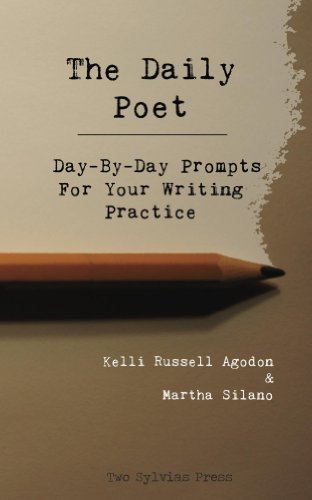
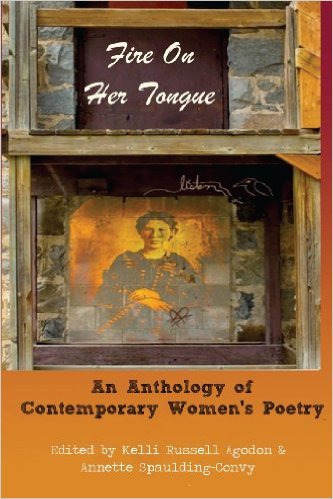
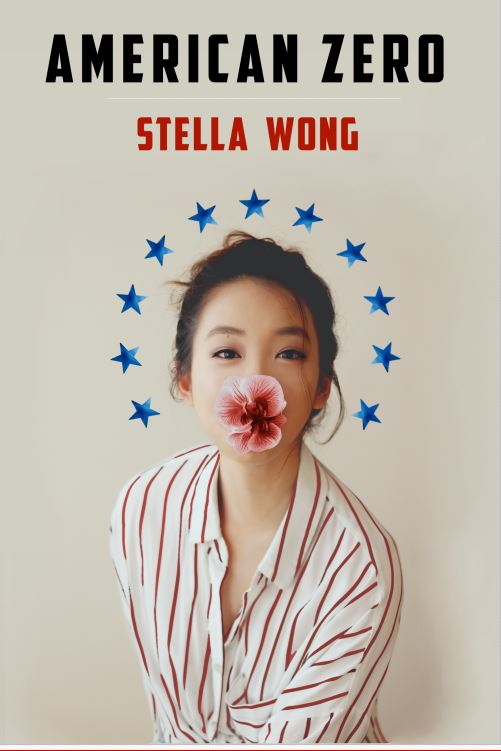
NY: Do you have any advice for writers who might want to start a small press of their own?
KRA: Start small. One book, not a ton of big plans. It’s amazing how one little thing will set the ball rolling, and then another project will pop up again and again.
Depending on your personality, consider collaborating with another person, or if you tend to like things your way, do it on your own. Know yourself. Know whether you could work with the same person for a long time, and know to what extent you’re willing to compromise.
Follow your instincts, not your head. Weird, I know, but I think we try to figure out “what will work” in our head, and our gut, more often than not, can tell us.
Hope to make money, but do not expect it.
Don’t wait for someone to give you permission, just do it. In a certain way, starting a press is like having a baby, there is never the perfect time, you just do it and your life adjusts around it, as it does for most things.
Finally, be kind to poets and writers and err in their favor, remembering that we are all just trying our best.
Kelli Russelll Agodon is the cofounder of Two Sylvias Press, where she works as an editor and book cover designer. Her most recent book, Hourglass Museum, was a finalist for the Washington State Book Awards and shortlisted for the Julie Suk Poetry Prize. Her second book, Letters from the Emily Dickinson Room, won Foreword Indies Book of the Year Prize for poetry. She coauthored The Daily Poet: Day-By-Day Prompts for Your Writing Practice with poet Martha Silano and is the Co-Director of Poets on the Coast. Her next collection of poems, Dialogues with Rising Tides, is forthcoming from Copper Canyon Press in 2021.
Jill McCabe Johnson
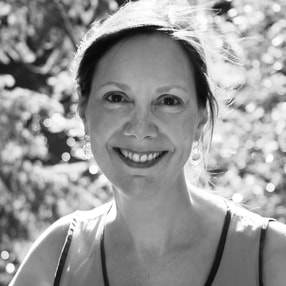
Nathaniel Youmans: How did you get Wandering Aengus Press off the ground? How did the press germinate from an idea into an institution?

Jill McCabe Johnson
Jill McCabe Johnson: In 2018, I decided to start Trail to Table Press. My aim was to publish books that reflected the ways in which people connect to nature and each other. We put out a call for submissions, and by early 2019, we published our first book, Going Feral, by Heather Durham, a candid and insightful memoir in essays that explores what it means to be in, and a part of, the wilderness.
Before long, I realized I wanted to be able to publish books that extended beyond those initial topics. So after deep consideration, I started Wandering Aengus Press as a more wide-reaching literary press and made Trail to Table a specialized imprint. A brilliant group of writers and editors, a couple of whom are RWW alumnae, agreed to be on our editorial board. Julie Riddle (2009), Tina Schumann (2009), Susan Kim Campbell, and Ana Maria Spagna have generously given their time and expertise. We released two more books in 2019: a rerelease of the poetry collection Passings, by Holly J. Hughes (2006), which had won the American Book Award, and the anthology For Love of Orcas. Our 2020 releases are in the works.
NY: Wandering Aengus Press’s Trail to Table imprint seems particularly interested in amplifying voices of the ecosystem and voices of people with one foot in the social world and one foot in the wild world. Can you talk a bit about the ecological niche that your press occupies?
JMJ: The last few years have been a frightening time in our country and around the world. As our politics become more divisive, I wonder about the future. How will we reconcile our differences? How will we forgive and move toward equity and cooperation? And, perhaps most importantly, how will we protect our earth for future generations? Research shows us that people bond through personal connection, and also that we learn empathy through narrative. It’s also apparent that people don’t care about what they don’t know about. So my highfalutin, reach-for-the-stars goals are to amplify works that bring us to a greater understanding of the earth and each other, so we can save the planet and save the future. Easy, right?
"So my highfalutin, reach-for-the-stars goals are to amplify works that bring us to a greater understanding of the earth and each other, so we can save the planet and save the future. Easy, right?"
NY: One of the most powerful and unique anthologies I’ve seen in years is For Love of Orcas. How did both witnessing this tragedy—a mother orca grieving for her dead calf—and actively gathering so many writers’ voices influence the vision and scope of your press?
JMJ: Thank you. I am grateful to Andrew Shattuck McBride, whose idea it was to create that anthology. Andrew and I recognized fairly quickly the publication provided an opportunity to bring attention not only to the endangered orcas but also their endangered food source, Chinook salmon, and their extended ecosystem. We wanted to show the many ways in which people experience the orcas, and the ways in which humanity is a part of their ecosystem, for better and for worse. Fortunately, there were many writers who felt as deeply as we did, including some from RWW. We were honored to include their essays and poems.
I believe writing is an act of hope. Even the angriest rant shows hope, because the author wouldn’t bother to write it if they didn’t believe things could get better. For Love of Orcas was an act of hope for us, as was naming The SeaDoc Society to receive proceeds from the anthology. In turn, SeaDoc sent copies to the Washington State Governor and each member of the State Legislature, extending that hope to make real change for the orcas, the salmon, and their habitat in local rivers and the Salish Sea. Seeing the words of our contributors go into the hands of legislators has been an exciting manifestation of the press’s vision.
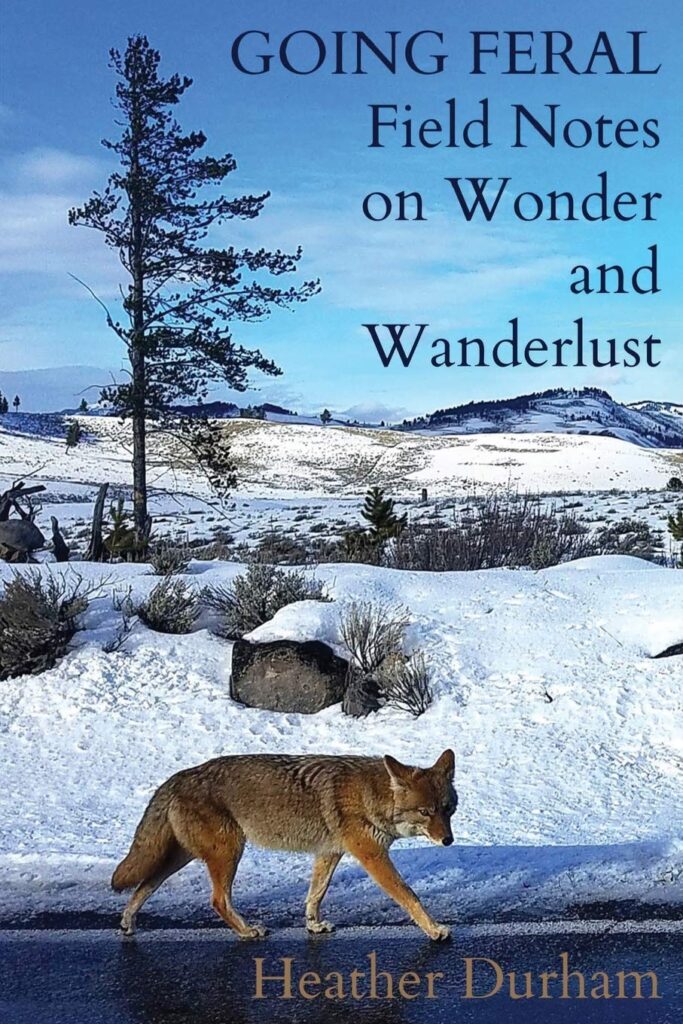
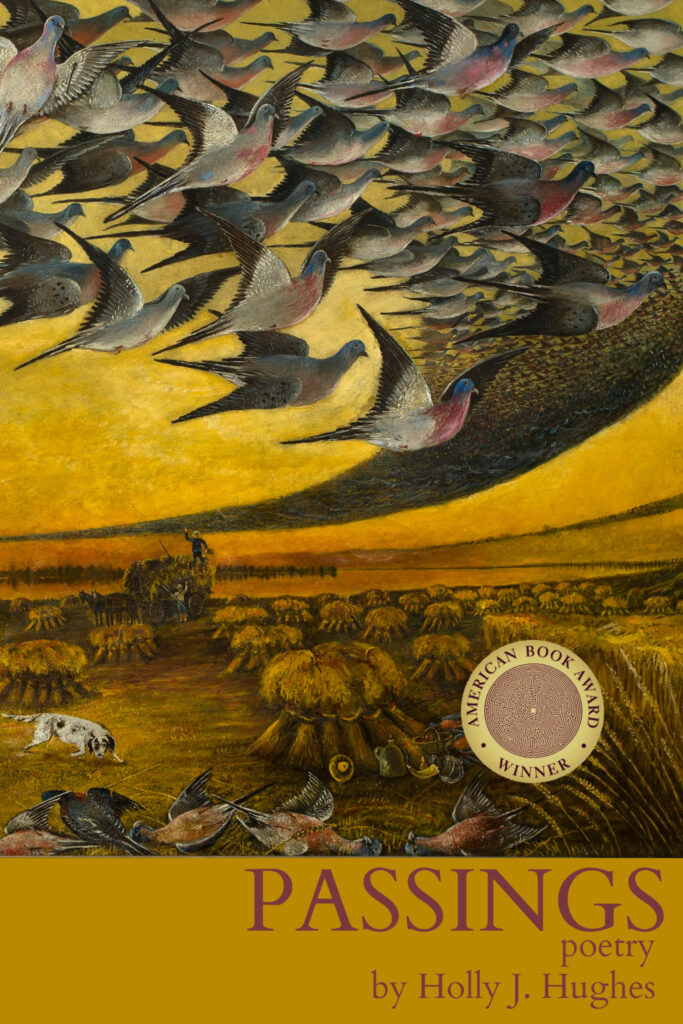
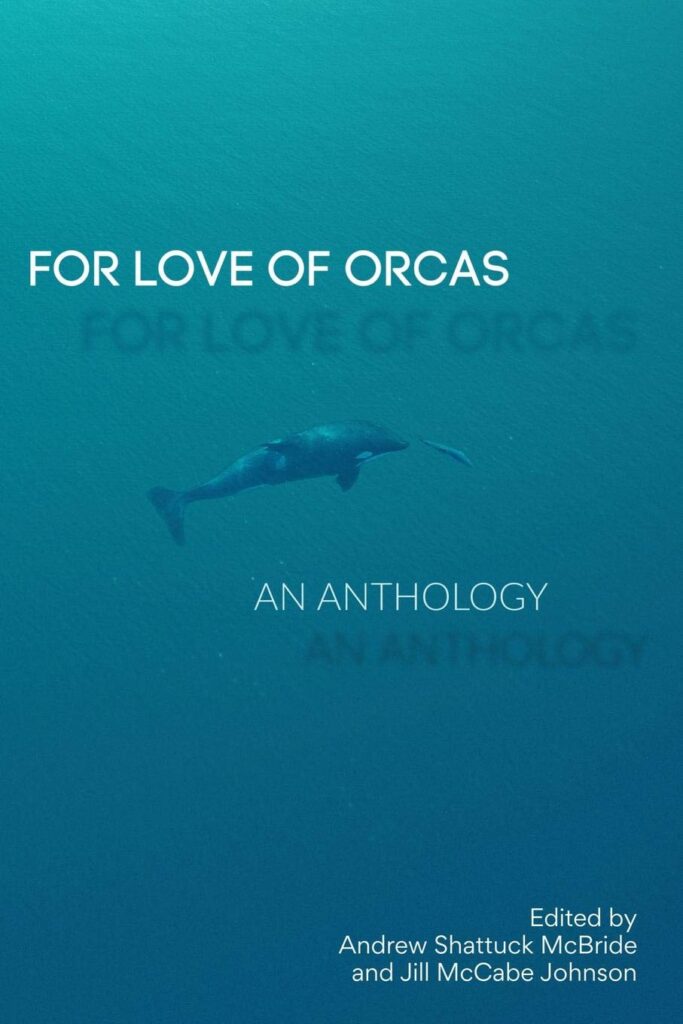
NY: What are some of the greatest challenges you’ve faced and rewards you’ve experienced from running a small press?
JMJ: In all honesty, this has definitely been a learn-as-you-go adventure. I think the hardest thing has been declining work. The writer in me knows how it feels to receive disappointing news, so I try to be sensitive to that. In terms of rewards, when authors entrust the press with their words, and we work together to produce something worthy of what they’ve written, it’s a joy. And when someone I’ve never met tells me how much they’ve enjoyed reading our books, I feel a swell of pride for our amazing authors.
NY: What will 2020 hold for Wandering Aengus?
JMJ: We have two titles about to be released: Vanish, winner of the Wandering Aengus Book Award, by Kevin Miller, and the novel Fertile Ground by Penn Stewart, which is being rereleased as a paperback. Later this year, Indu Subaiya’s first book, a socio-political travelogue entitled America as Seen from Planet Earth will come out. For submissions, we will have an open reading period for Trail to Table during the month of March, and Wandering Aengus will have its second contest this summer. We’re hoping to publish more fiction, nonfiction, and poetry, and are also open to hybrid works.
In 2020 and beyond, we hope to publish authentic voices with unique perspectives, to share writing and stories that inspire us (regardless of how dark the writing may be) to bring out the best in ourselves, to love unreservedly, and take care of the earth and each other. After all, what else have we got?
Jill McCabe Johnson is the author of Revolutions We'd Hoped We'd Outgrown (Finishing Line, 2017), finalist for the Clara Johnson Award in Women's Literature from Jane's Stories Press Foundation, and Diary of the One Swelling Sea (MoonPath, 2013), which won the 2014 Silver Award in Poetry from Nautilus Book Awards. Jill is also the author of the nonfiction chapbook Borderlines (Sweet Publications, 2016) and the poetry chapbook, Pendulum, finalist for the Rane Arroyo Award and forthcoming from Seven Kitchens Press. She is the founding director of the nonprofit, Artsmith, and publisher at Wandering Aengus Press. She has received support from the National Endowment for the Humanities and Artist Trust and the American Academy of Poets Award. Jill earned her MFA in Creative Writing from Pacific Lutheran University's Rainier Writing Workshop and her PhD in English from the University of Nebraska–Lincoln. She teaches Creative Writing at Skagit Valley College in the San Juan Islands.
